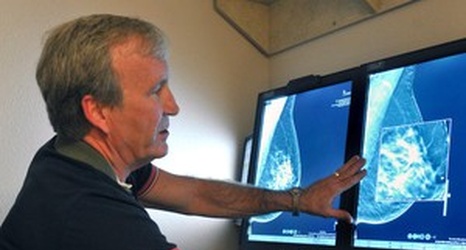Whenever The Times publishes a piece raising questions on the efficacy of regular mammograms for women over 40 (or any cancer screening or treatment, for that matter), we typically receive several impassioned letters to the editor from cancer survivors or patients currently undergoing therapy who say they owe their lives to early detection methods.
That reaction is understandable and welcome. For these people, abstractions about the usefulness of treatment or screening methods over large populations are highly personal in a way they aren't for the rest of us. Their stories of surviving cancer ground debates over efficacy and best practices in real-life, human experiences.
